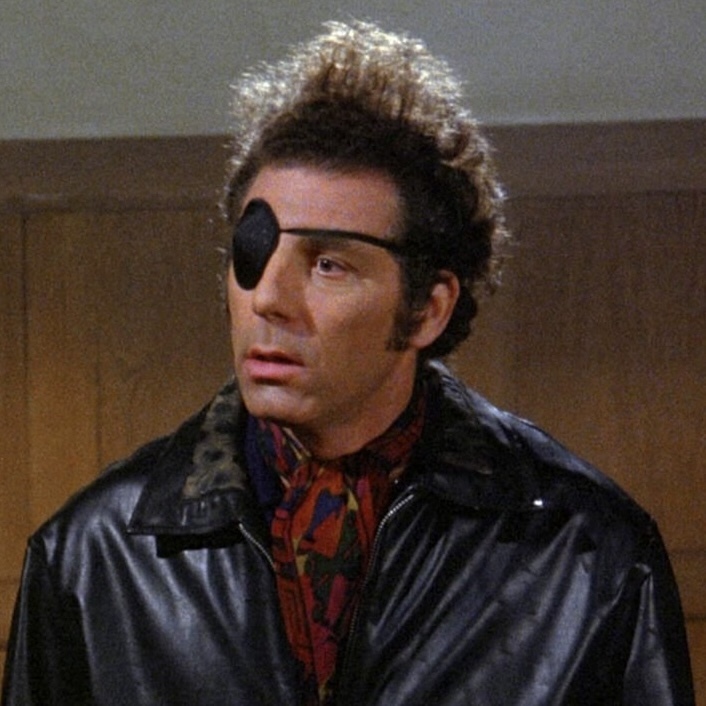(Please don’t downvote just because I need some help.)
I was once a privacy nut. But it’s getting so hard nowadays, and there are so many more important problems – global warming, AI, the inevitable collapse of the current world order… how does privacy improve the world? Please help remind me.
I do approve of privacy, of course. All this protect-the-children flak is bullshit. I just can’t remember why I thought it was something worth fighting for and preaching about.
I fight for privacy to protect myself.
Now, what am I protecting myself from? I don’t think anyone is going to come arrest me for what I do. I don’t think any big companies are going to leak my data and embarrass me. I don’t think anyone is going to compromise my bank and drain my funds.
I am protecting myself from being influenced by advertising and targeted news.
I am protecting my thoughts and feelings, because in the end, that’s all that really matters. I don’t want to need the next toy, or jump on a bandwagon. I don’t want to see advertising and I don’t want a carefully crafted worldview pushed on me.
Well said! I am in this camp 👩🏼💻 I also don’t want my data being sold off without my consent.
Do what you can and dont let perfect be the enemy of good. You’re still ahead of the rest of the crowd who don’t give a shit.
For people to try and effectively respond to those issues they must be able to communicate privately with no fear of retribution.
It also requires private and secure communications to be a normal thing and not an indicator that the parties involved are criminals, terrorists or pedos.
Ai by the way is going to be just a little fart compared to the other issues you described as well as the lack of privacy.
Also a problem related to privacy is our growing dependence on private corps to be a ‘normal’ person (“why you don’t have a Facebook/Google/Amazon/etc account ?”)
AI could kill everyone, though it most likely won’t IMO. 10% chance I think. That’s still very bad though. Despite the fact that Ilya Sutskever, Geoff Hinton, MIRI, heck even Elon Musk have expressed varying degrees of concern about this, it seems the risk here is largely dismissed because it sounds too much like science fiction. If only science fiction writers had avoided the topic!
This is bullshit. AI will be hunting down survivors? Thus more lethal than nuclear war? ChatGTP4 will be better at it?
Most of these concern seem to be about AGI which we are nowhere close to having and have no clear path to. Our "AI"s not only do not understand causality but don’t have the ability to perform arithmetic. Nor do they run stuff that could kill humans. Except if you consider Tesla’s FSD an AI system, but Musk assured us back in 2017 it would be safe…
where did you get the idea that gpt4 is capable of this? this is concerns for 10+ years from now, assuming AI makes the same strides is has in the past 10 years, which is not guaranteed at all.
I think there are probably 3-5 big leaps still required, on the order of the invention of transformer models, deep learning, etc., before we have superintelligence.
Btw humans are also bad at arithmetic. That’s why we have calculators. if you don’t understand that LLMs use RAG, langchain (or similar), and so on, you clearly don’t understand the scope of the problem. Superintelligence doesn’t need access to anything in particular except, say, email or chat to destroy the world.
But it’s getting so hard nowadays
It’s a sliding scale; it isn’t just ‘full privacy’ or ‘no privacy’. Everyone makes compromises somewhere based on their personal preferences. Most people would agree posting their credit card number on a public forum is too far into the ‘no privacy’ band, for example.
how does privacy improve the world
It’s up to you, but I don’t like trusting my personal info with untrustworthy companies.
It’s a sliding scale; it isn’t just ‘full privacy’ or ‘no privacy’.
Not only is it a sliding scale, it’s a multidimensional one because it also depends on what your threat model is. “Privacy” from an abusive partner snooping on your phone to discover your escape plan, “privacy” from Target trying to market diapers to you when nobody even knows you’re pregnant yet, “privacy” from Cambridge Analytica trying to psychoanalyze you so they can better target you with right-wing propaganda, and “privacy” from an authoritarian government because you’re a journalist trying to protect whistleblowers are all different goals that may require different strategies to achieve.
it’s getting so hard nowadays
It’s definitely not easy, but sometimes we just do the best we can, even if it’s not the most that could be done.
Everyone has their own unique threat model. A random everyday person will have less need for personal privacy than, say, a government employee that works for an intelligence agency. Do what you can to protect what matters most to you, but don’t stress if you can’t upend your entire life to improve your privacy.
there are so many more important problems
You can support multiple solutions to world issues at the same time, without needing to make any individual one the most important one, or completely throwing out your other beliefs.
Privacy protects you from anything ranging from annoying ads, to targeted election misinformation, is key to dismantling the surveillance state that is regularly used to silence opposition to current political powers, and protects your right to free speech in a world where every government wishes they could control you just a bit more.
Privacy protects you from self-censorship. It keeps you safe from people who might want to harm you or your family for your views. It lets you protest oppressive policy.
Companies make money off your data. And what are these companies contributing to? Global warming through ever-expanding datacenters running AI models you didn’t ask for. Political campaigns that endorse monopolies. The exploitation of third-world countries.
By taking away their ability to sell you for profit, you indirectly reduce numerous other harms.
I just can’t remember why I thought it was something worth fighting for
The world is crazy. It’s not weird to let things like privacy fall to the wayside when seemingly larger problems pop up, but privacy doesn’t exist in a vacuum. Everything is interconnected, and privacy directly impacts these other issues.
It’s okay to just do what you can. the world isn’t perfect, and neither are we.
Privacy directly helps dismantle systems of power, surveillance, advertising, and manipulation. So if that’s worth it to you, then keep fighting.
Privacy means personal agency and freedom from people, whether individuals, companies, or the government, controlling you with direct or implied threats, or more subtle manipulation, which they can do because they have your dox and because information is power.
A lack of privacy adds fuel to the polycrisis because if we can’t act in relative secrecy that basically means we can’t act freely at all, and nothing can challenge whoever runs the panopticon.
Privacy doesn’t need any justification to why it’s important any more than why someone molesting you on the street doesn’t need a detailed explanation as to why it’s bad. Corporations and states are dirty abusers that want to know about and sell every part of your private life, and that should make you uncomfortable. Having to justify why you deserve privacy in the face of this form of abuse is simply victim blaming.
i appreciate this philosophically, but it’s not really the pragmatic answer I was looking for.
But it’s getting so hard nowadays, and there are so many more important problems – global warming, AI, the inevitable collapse of the current world order… how does privacy improve the world? Please help remind me.
Privacy as a cause is something that helps support other forms of activism. We live in a world in which hostile state actors routinely surveil activists in order to more effectively divide, subvert, marginalize, and intimidate them; privacy is important counterplay against this. It’s like saying that you’re not going to eat healthy because exercising is more important; one facilitates the other.
Yeah, this is a very compelling take.
As for the USA, let me put it this way: If Trump gets elected, with the tech tools the govt has, we will see, at the very best, another Hong Kong, with anyone that disfavors the Repubs disappearing, some permanently. At the worst, we will see another Nazi Germany. He himself proposed executing people.
If you practice privacy and can teach others, your skills will be valuable to the underground resistance.
He himself proposed executing people.
Link?
When authoritarian governments have complete power they don’t really checks and balances to the system, or juries. Take Putin - Navalny for example. You would know this if you aren’t a Holocaust denier.






